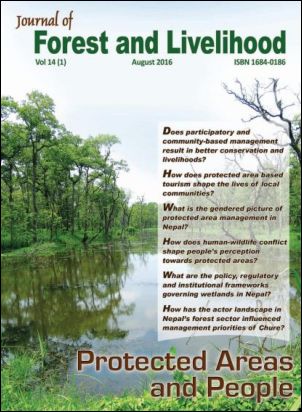Shifting Paradigms in Wetland Governance: Shaping and Reshaping Conservation
DOI:
https://doi.org/10.3126/jfl.v14i1.23163Keywords:
Fragmentation, governance, institutions, Multi-stakeholder platform, wetlandsAbstract
The Ramsar Convention came into force in Nepal in 1988 and it was an expression of the country’s commitment to wetland conservation. Despite this, wetlands continue to degrade rapidly across Nepal. This paper examines the cross-cutting issue of wetland governance in Nepal with a case of a Ramsar site, sheds light on the recent developments and identifies its implications for the future. Wetland conservation has remained centralized in the past, with power vested in the state to manage through ministries and district offices. The irony is that numerous sectoral agencies claimed authority over its governance but failed to deliver its effective management. The paper suggests that wetland governance models will need to improve their design in order to espouse participation of non-state actors and to enhance synergies at all levels (local-district-national). Since there are no blueprint models or panacea for a multi-faceted resource such as wetlands, a critical balance should be maintained between efficiency of the design while ensuring adequate and meaningful space for engagement of non-state actors.
Downloads
Downloads
Published
How to Cite
Issue
Section
License
CC-BY-NC: This license allows reusers to distribute, remix, adapt, and build upon the material in any medium or format for noncommercial purposes only, and only so long as attribution is given to the creator.





